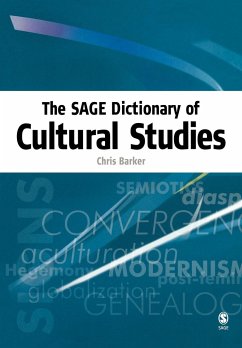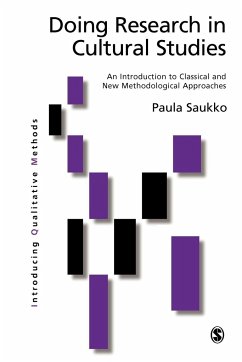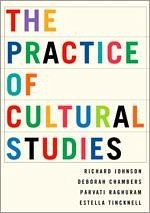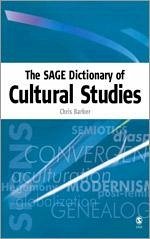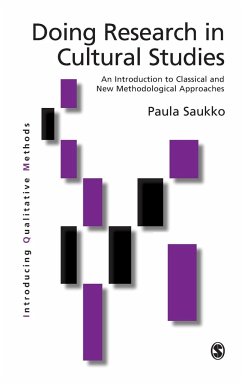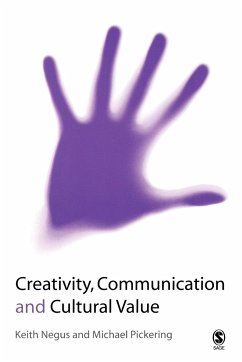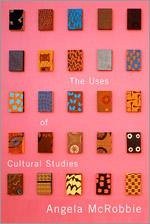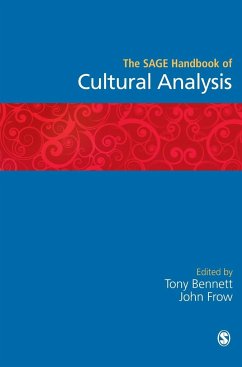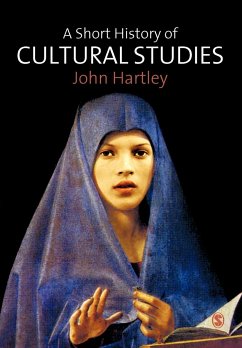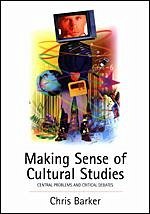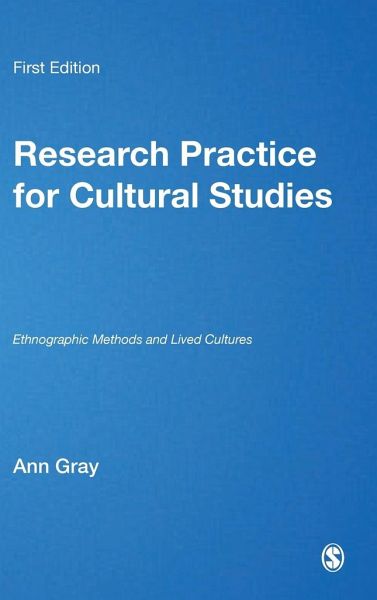
Research Practice for Cultural Studies
Ethnographic Methods and Lived Cultures
Versandkostenfrei!
Versandfertig in 6-10 Tagen
141,99 €
inkl. MwSt.
Weitere Ausgaben:

PAYBACK Punkte
71 °P sammeln!
'This is an Excellent textbook and a valuable addition to the growing field of 'how to' books providing advice and guidance for practitioners and students wishing to undertake fieldwork of an ethnographic nature.... this books deserves to be high on your reading list'- Active Learning in Higher Education`Gray's book tells us an important story, starting from the epistemological and methodological background of a number of key studies in the Birgmingham tradition, it explores how to make use of these research experiences and how to deploy "experience" as a tool for research' -Roberta Sassatelli...
'This is an Excellent textbook and a valuable addition to the growing field of 'how to' books providing advice and guidance for practitioners and students wishing to undertake fieldwork of an ethnographic nature.... this books deserves to be high on your reading list'
- Active Learning in Higher Education
`Gray's book tells us an important story, starting from the epistemological and methodological background of a number of key studies in the Birgmingham tradition, it explores how to make use of these research experiences and how to deploy "experience" as a tool for research' -
Roberta Sassatelli, School of Economic and Social Studies, University of East Anglia
How is culture `lived'? What are the best ways of investigating cultural life? This timely, assured and accessible book has three objectives. First, it seeks to give a critical selective account of the main ethnographic methods that have influenced cultural studies. Second,it offers practical guidance on the craft of research, from formulating a topic to presenting it in written form. Third, it provides help with key questions of evaluative criteria and values in the research process.
This is one of the first cultural studies books to address the question of the research process in detail. Students who want to do empirical research will find the book to be an indispensable resource that will enable them to focus on the correct issues and ask the right questions for effective research. The book develops a set of research practices that are appropriate to a critical understanding of culture, power and everyday life. It will rapidly establish itself as the lecturer's stand-by and the student's friend for all issues relating to qualitative research in cultural studies.
- Active Learning in Higher Education
`Gray's book tells us an important story, starting from the epistemological and methodological background of a number of key studies in the Birgmingham tradition, it explores how to make use of these research experiences and how to deploy "experience" as a tool for research' -
Roberta Sassatelli, School of Economic and Social Studies, University of East Anglia
How is culture `lived'? What are the best ways of investigating cultural life? This timely, assured and accessible book has three objectives. First, it seeks to give a critical selective account of the main ethnographic methods that have influenced cultural studies. Second,it offers practical guidance on the craft of research, from formulating a topic to presenting it in written form. Third, it provides help with key questions of evaluative criteria and values in the research process.
This is one of the first cultural studies books to address the question of the research process in detail. Students who want to do empirical research will find the book to be an indispensable resource that will enable them to focus on the correct issues and ask the right questions for effective research. The book develops a set of research practices that are appropriate to a critical understanding of culture, power and everyday life. It will rapidly establish itself as the lecturer's stand-by and the student's friend for all issues relating to qualitative research in cultural studies.





